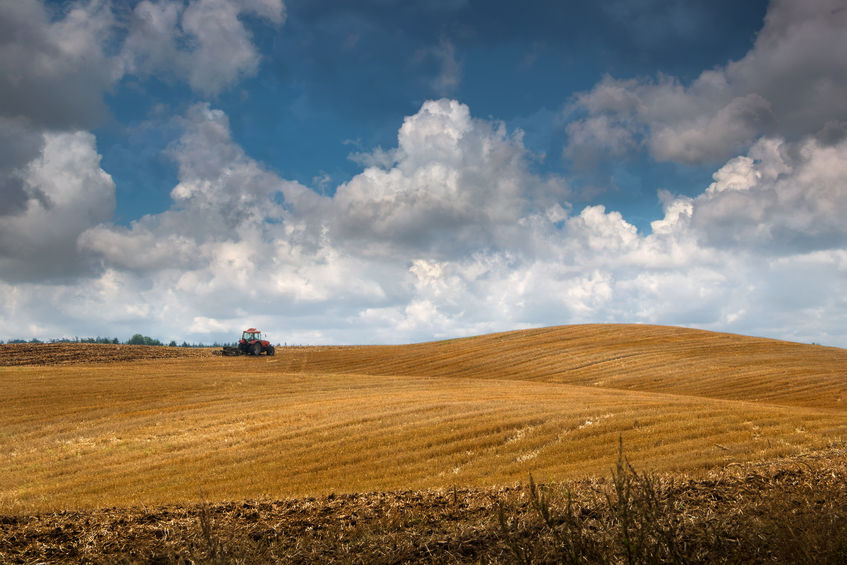
The UK’s agricultural industry has been at the heart of the EU referendum debate because of the EU’s farming subsidies and the sector’s sensitivity to price changes and tariffs.
However, many people are still unclear on how the referendum’s outcome will affect this key part of our economy.
With the EU referendum on June 23 drawing closer, the UK200Group – the UK’s leading membership association of quality-assured independent chartered accountancy and law firms – has asked the official Remain and Leave campaigns a number of key questions, as posed by its members and their clients.
Three of the 30 questions in the report address how the agricultural industry would be affected by the outcome of the vote.
What would happen with farming subsidies?
The Remain campaign said: "The European Agriculture Fund for Rural Development, where Britain gets £1.4bn from 2014 to 2020, and CAP funding, where the EU has earmarked £20bn for UK farmers until 2020, are vital sources of income for our farmers.
"Many of them rely on it for income and may not be able to sustain themselves without this money. Outside of the EU, our access to this crucial funding would be lost.
"The leave campaigns make all sorts of promises about spending fictional savings on the NHS, on agriculture, on schools, but the reality is that leaving the EU would wreck our economy.
"Vote Leave have already been called out on having a £14bn black hole in their spending plans, so farmers cannot trust them on their fantasy plan for Britain outside the EU."
The Leave campaign said: "It is not necessary to be a member of the scheme to guarantee funding or subsidies - the UK supported those who produce its food for years before joining the EU, and would continue to do so after we Vote Leave.
"British farmers would continue to be supported after we Vote Leave. Switzerland, Norway, and Iceland all support their farming sectors outside the EU and the CAP.
"In fact, the payments made by these countries are actually more generous than those paid by the EU to member states.
"David Cameron has guaranteed that British farmers would continue to be supported, writing to the Country Land and Business Association (CLA: 'As long as I am Prime Minister, I would make sure that an agricultural support system would be properly maintained' and appears to commit that he would expect any future Conservative government to do likewise."
What changes would there be, if any, to import and export tariffs on agricultural or other commodity prices?
The Remain campaign said: "If the UK left the EU and did not secure a free trade agreement with it, future UK-EU trade would take place on WTOterms.
"Some leave campaigners back this option. Under WTO terms, the EU could apply ‘Most Favoured Nation’ MFN) tariffs on imports from the UK including agricultural imports."
"This would make UK exports to the EU more expensive, hitting our trade.
"The EU applies an average tariff of 14% on agricultural imports from non-EU countries (including countries with special arrangements with the EU like Norway and Switzerland).
"Tariffs could be higher on some products – for example, up to 42% for some dairy products."
The Leave campaign said: "The independent House of Commons Library concluded that EU membership actually increases the costs of consumer goods.
"It stated that the EU’s Common Agricultural Policy ‘artificially inflates food prices’ and that ‘consumer prices across a range of other goods imported from outside the EU are raised as a result of the common external tariff and non-tariff barriers to trade imposed by the EU.
"These include footwear (a 17% tariff), bicycles (15% tariff) and a range of clothing (12% tariff).
"If we Vote Leave, the UK is certain to strike a free trade agreement with the EU which will allow British farmers to sell their produce to the EU without tariffs or quotas.
"The Foreign Secretary, Philip Hammond has admitted that a free trade agreement in agricultural goods 'would be relatively simple to negotiate'
What would happen to agricultural commodity prices if there were any trade restrictions of any type?
The Remain campaign said: "It would become more expensive to trade in goods if we leave the EU, through new trade barriers and potential tariffs.
"This would increase the cost of trade to businesses, which could be reflected in higher prices."
The Leave campaign said: "On 5 May 1998, the European Court refused to strike down a worldwide ban on the export of British beef imposed by the European Commission in March 1996 during the bovine spongiform encephalopathy (BSE) epidemic.
"The ban was eventually lifted by the Commission on 1 August 1999 after a crisis which cost the farming industry an estimated £1.5 billion.
"The Commission could do the same thing again if the UK votes to remain."
The UK200Group compiled the questions in order to address a lack of clarity about how remaining or leaving the EU would affect the small business community.
